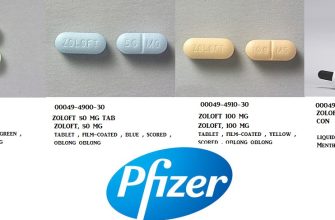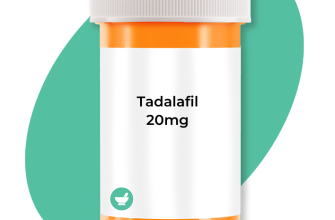Need information on Atorvastatin 40mg? Start with this: always consult your doctor before starting or changing any medication, including this statin. Self-treating can be harmful.
Atorvastatin 40 mg is a commonly prescribed medication to lower cholesterol. It works by inhibiting the enzyme responsible for producing cholesterol in your liver. This reduction in cholesterol levels contributes to a decreased risk of cardiovascular events like heart attacks and strokes. Regular blood tests monitor your cholesterol and liver function during treatment.
Common side effects include muscle aches, digestive upset, and elevated liver enzymes. Rare but serious side effects such as rhabdomyolysis (muscle breakdown) require immediate medical attention. Report any unusual symptoms to your physician. Your doctor will determine the appropriate dosage and duration of treatment based on your individual health needs.
Remember: This information is for educational purposes only and does not substitute professional medical advice. Discuss Atorvastatin 40 mg and its potential risks and benefits with your healthcare provider to create a personalized treatment plan tailored specifically to you. They can guide you through potential drug interactions and address any concerns you may have.
Potential Side Effects and Precautions
Atorvastatin, while generally well-tolerated, can cause side effects. Muscle aches (myalgia) are a common concern, sometimes progressing to a more serious condition called rhabdomyolysis. Report muscle pain, weakness, or tenderness immediately to your doctor.
Liver Function
Atorvastatin can affect liver function. Your doctor will likely monitor your liver enzymes through blood tests before starting treatment and periodically thereafter. Inform your physician if you experience symptoms such as jaundice (yellowing of skin or eyes), dark urine, or unusual fatigue.
Other Potential Side Effects
Less common side effects include digestive issues like constipation, diarrhea, or nausea. Some individuals experience headaches, dizziness, or sleep disturbances. Rarely, allergic reactions occur. If you experience any concerning symptoms, contact your healthcare provider immediately.
Precautions
Grapefruit and grapefruit juice can interact negatively with atorvastatin, increasing its blood levels. Avoid consuming them while taking this medication. Also, discuss any other medications you’re taking with your doctor, as interactions are possible. Pregnancy and breastfeeding require careful consideration and medical guidance. Before starting atorvastatin, inform your doctor about your complete medical history, including any pre-existing conditions, such as kidney or liver disease.
Specific Patient Populations
Older adults may be more susceptible to certain side effects. Individuals with pre-existing muscle problems should discuss this with their physician prior to starting treatment. Be sure to follow your doctor’s instructions carefully and attend all scheduled follow-up appointments for monitoring.
Interactions with Other Medications and Foods
Grapefruit juice inhibits the metabolism of atorvastatin, increasing its blood levels and potentially raising the risk of side effects. Avoid grapefruit and grapefruit juice while taking atorvastatin.
Atorvastatin can interact with several medications, notably some antifungals like ketoconazole and itraconazole, increasing the risk of muscle problems (myopathy). Your doctor should be informed about all medications you are taking, including over-the-counter drugs and supplements.
Cyclosporine, a medication used to prevent organ rejection, also increases atorvastatin levels. Combining these medications requires close monitoring by your physician.
Some statins, including atorvastatin, can increase the risk of bleeding when combined with warfarin, a blood thinner. Regular blood tests to monitor your INR are necessary if you take both.
Fibric acid derivatives, used to lower triglycerides, may increase the risk of myopathy when taken with atorvastatin. Your doctor might recommend a lower dose of one or both medications.
Alcohol consumption can increase the risk of liver damage, a potential side effect of atorvastatin. Moderate alcohol intake is advised while taking this medication. Consult your doctor about safe limits.
Always inform your doctor or pharmacist about all medications and supplements you use. This ensures safe and effective management of your health.
Monitoring and Follow-up Care
Regular blood tests are necessary to monitor your liver function and cholesterol levels. Expect these checks every 3-6 months initially, then potentially less frequently as your condition stabilizes. Your doctor will determine the appropriate schedule based on your individual needs.
Monitor your muscle pain. Report any unexplained muscle aches, weakness, or tenderness to your doctor immediately. This is crucial for early detection of potential side effects.
Regularly check your blood glucose levels if you have diabetes, as atorvastatin can affect blood sugar control. Adjust your medication as directed by your physician.
Maintain a healthy lifestyle. Continue to follow a low-fat, low-cholesterol diet and engage in regular physical activity. These habits, combined with medication, maximize treatment efficacy.
Schedule follow-up appointments with your doctor as recommended. These visits allow for ongoing assessment of your progress, medication adjustments, and address any emerging concerns. Proactive communication with your healthcare provider is key.
Be aware of potential drug interactions. Inform your doctor about all medications, supplements, and herbal remedies you are taking. This prevents unforeseen complications.
Report any new or worsening symptoms promptly to your doctor. This allows for timely intervention and adjustment of your treatment plan, ensuring optimal results.









